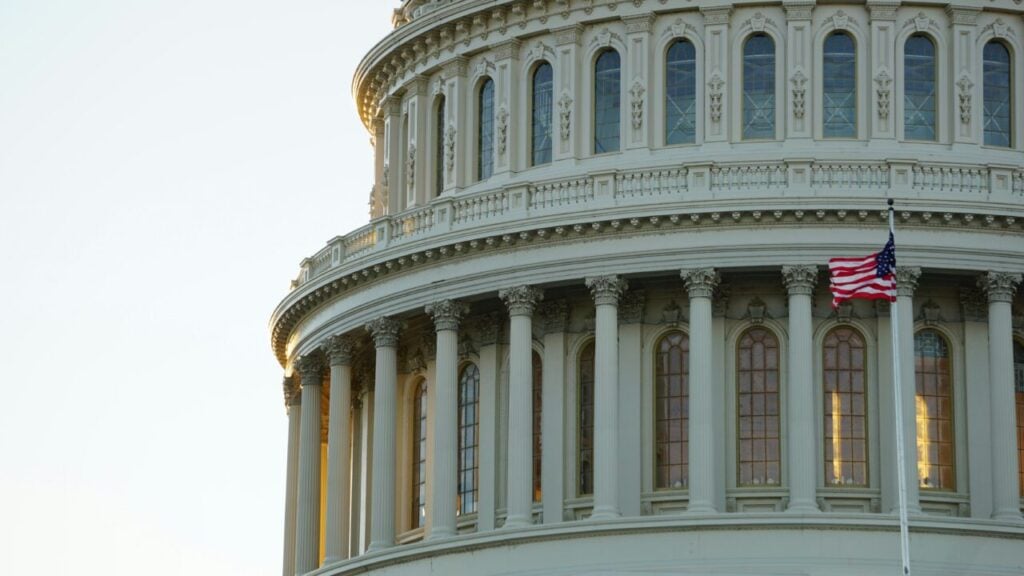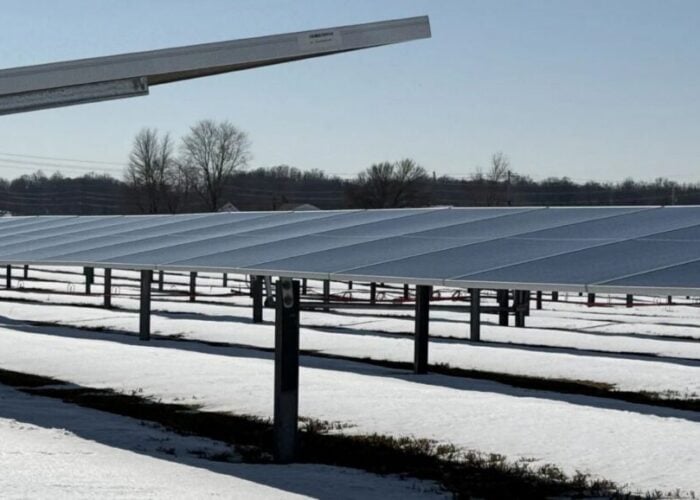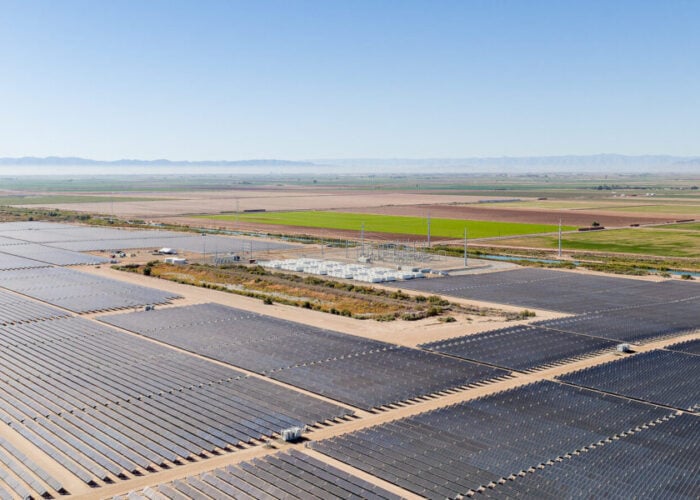
A group of Republican Congress members penned an open letter on Friday urging the US Senate to moderate proposed changes to renewable energy manufacturing and deployment support.
The letter, signed by 13 members of the House Republican Conference, calls on the Senate to “substantively and strategically improve clean energy tax credit provisions” included in the “One, Big, Beautiful Bill”, which passed the US House of Representatives last month and drastically reduces support for renewable energy.
Try Premium for just $1
- Full premium access for the first month at only $1
- Converts to an annual rate after 30 days unless cancelled
- Cancel anytime during the trial period
Premium Benefits
- Expert industry analysis and interviews
- Digital access to PV Tech Power journal
- Exclusive event discounts
Or get the full Premium subscription right away
Or continue reading this article for free
In its current form, the reconciliation bill – as it is officially known – would introduce a sharp, 60-day end to Inflation Reduction Act (IRA) tax credits for renewables and energy storage projects which had not yet begun construction at the time of the bill’s passing into law.
It also contains what the letter’s signatories called “highly restrictive and onerous” language prohibiting access of “Foreign Entities of Concern” (FEOC) to the US market and restrictions on transferability provisions for tax credits.
The US Solar Energy Industries Association (SEIA) found that the current bill could endanger over 300,000 solar energy jobs and threaten 331 manufacturing facilities with cancellation or closure. Our colleagues at Energy-storage.news heard from Bloomberg New Energy Finance this morning that energy storage installation figures could “plummet” if the bill passes as is.
Having passed through the House, the bill is now in the Senate where it could be subject to amendments before being signed into law by president Donald Trump.
‘Refinements’ are needed
The letter, addressed to Senate majority leader John Thune and the chairman of the Committee on Finance, Mike Crapo, cites research showing that US$14 billion in US clean energy projects have been delayed or cancelled since president Trump’s inauguration in January. It says that without “a clear signal from Congress encouraging continued investments and offering business certainty”, those cancellations will “snowball”.
The 13 signatories called for changes in three areas: FEOC provisions, the tax credit phase-out and transferability.
The FEOC provisions are “overly prescriptive and risk undermining US competitiveness”, the letter said, particularly against China in the renewable energy industries. Global supply of renewable energy components is concentrated in China, and various countries, not least the US, are attempting to establish more localised production to reduce reliance on Chinese supply.
The FEOC language currently prohibits “material assistance” from Chinese, Iranian, Russian or North Korean governments or companies. This covers direct procurement of products, components, sub-components and materials, as well as intellectual property and copyrights held by FEOC entities. Projects receiving any of these things will not be eligible for tax credits if the bill passes in its current form.
Prior to the bill passing through the House, we heard from US policy hawks about the ambiguities and attendant uncertainty contained within the FEOC language (premium access). Crucially, the US currently produces predominantly solar modules, which rely heavily on imported materials and upstream components to support their assembly in the US. Those come from supply chains dominated by China and Chinese companies.
The Republicans’ letter says the FEOC provisions should be “revised with clear and streamlined requirements that also allow companies additional time to reorganise their supply chains”, and that the Senate should “work with impacted industries to ensure that these requirements are mechanically workable, thoughtfully designed, and offer certainty to critical sectors.”
The letter also urges changes to the current phase-out schedule for renewable energy tax credits, which it said would cause “significant disruption to projects under development and stop investments needed to win the global energy race.”
It recommends extending the provision for solar and wind until 2030, as per an act introduced last month by Representative Jennifer Kiggans from Virginia, one of the signatories of the letter. The current bill gives strict dates for when a project is “placed in service”, but the signatories of the letter said: “ Due to ongoing permitting delays and factors often outside of their control, businesses rarely can pinpoint exactly when their projects will be placed in service.”
It said it aims to give US firms the “investment clarity and lead time required for energy projects to succeed.”
The third recommendation calls for transferability (the ability to sell tax credits for cash) to be available “throughout the lifetime of a credit”.
“Utilising transferability allows small and medium energy developers to harness private sector investment capital much more effectively, enabling companies across the economy to invest in a broad spectrum of generation technologies and domestic manufacturing facilities,” the letter insists.
The signatories concluded: “We believe the Senate now has a critical opportunity to restore common sense and deliver a truly pro-energy growth final bill that protects taxpayers while also unleashing the potential of US energy producers, manufacturers, and workers.”
Republican opposition to abolishing renewable energy tax credits is not new; a group of four Senators called for a “stable” approach to tax credits in April, before the reconciliation bill had been drafted. A similar letter was published in August, however the “One, Big Beautiful Bill” still made it to the Senate with deep and dramatic cuts to renewable energy provisions. Hopes of many in the US renewable energy industry now lie with Senators.






